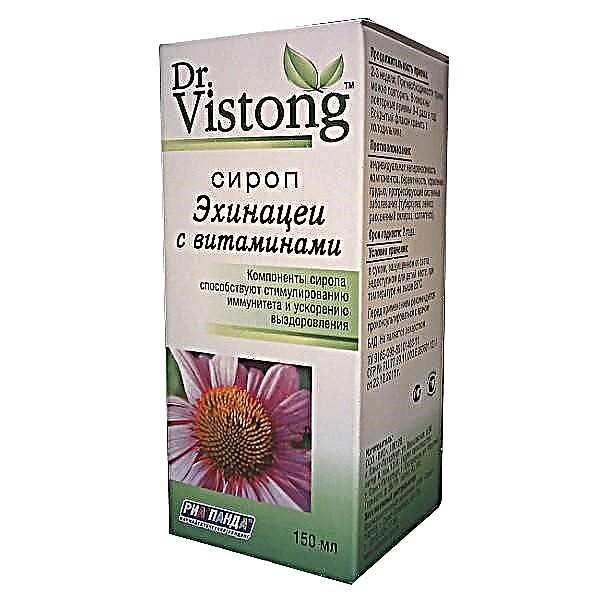
The emergence of allergy symptoms in the expectant mother always alarms both the woman herself and her doctor. And no matter what exactly began to bother the pregnant woman: a rash on the skin, a runny nose, swelling or conjunctivitis, any signs of allergy require immediate treatment, which should be not only effective, but also gentle. Usually, antihistamines are used to eliminate such symptoms, for example, Suprastin.
If a woman used this effective drug for allergies before pregnancy, then when rhinitis, rashes and other allergic reactions appear, she can automatically get this drug from the home first-aid kit and take it without further hesitation to alleviate her condition. However, this should not be done, because there is no reliable data on the effect of "Suprastin" on the fetus, and in most cases it is advisable to refuse its use during pregnancy.
It is permissible to use it while the child is waiting only under the supervision of a doctor.

Features of the drug
"Suprastin" is one of the popular antihistamines because it effectively removes allergy symptoms and is affordable. In pharmacies, this drug is presented in two types. The most popular form of the drug is tablets containing the active substance in a dose of 25 mg. They are grayish-white in color, odorless, round in shape. Tablets are sold in 20 pieces in glass bottles or in blisters placed in a cardboard box.
The second form of "Suprastin" is a solution for injections. It is colorless and transparent, contains 20 mg of active ingredient in 1 ml. Such a solution can be injected into a vein or into muscle tissue when rapid elimination of dangerous allergy symptoms is required. It is produced in packs of 5-10 ampoules containing 1 ml of the drug.
Both versions of "Suprastin" are recommended to be stored in a place hidden from children at temperatures from +15 to +25 degrees. The shelf life of such a drug is 5 years. The tablet can be purchased without a prescription, and to buy ampoules with an injection solution, you must first get a prescription from a doctor.
The main ingredient of the drug, which is chloropyramine hydrochloride, is able to block histamine receptors. This prevents histamine from binding to sensitive receptors, which reduces its effect on the body, which is manifested by itching, edema, spasm of smooth muscles, hyperemia and other allergic symptoms. The effect after taking "Suprastin" develops after 15-20 minutes and lasts about 3-6 hours.


Is it allowed for pregnant women?
In the annotation to both forms of "Suprastin" there is information that such drugs are contraindicated during the period of gestation. The ban on the use of this medication is associated both with its ability to penetrate with the blood to the fetus, and with insufficient study of the effect of its active compound on the course of pregnancy. However, in some cases, doctors risk prescribing "Suprastin" to a pregnant woman, if there are serious reasons for this. This remedy is used in situations where the expected benefit is higher than the risk to the baby in the womb.
The doctor's decision to take "Suprastin" is also influenced by the gestational age. In the 1st trimester, they try to refuse such a medicine if possible, like many other medicines. The fact is that the active substance of the drug instantly penetrates the bloodstream and gets to the fetus, therefore, in the early stages, it can disrupt the development of the embryo.
Since the risk of congenital defects and abnormalities after taking Suprastin for up to 12 weeks is very high, it is prescribed only as a last resort, if the allergy is more dangerous for the expectant mother and baby than this antihistamine drug.

Taking most medications in the 2nd trimester affects the baby to a lesser extent. By 12-14 weeks, the baby is already sufficiently strong and protected by the placenta, but it is still vulnerable to the effects of drugs, especially if the dosage is too high or drugs are taken too often. Therefore, "Suprastin" can be used in the second trimester, but only in a dose selected by a doctor and for a short period of time. As soon as the condition of the expectant mother improves, the drug is immediately canceled.
As for the 3rd trimester, during this period of pregnancy the use of "Suprastin" is not recommended. Such a medicine is considered especially harmful in the last month of gestation, since it can disrupt normal labor activity and provoke breathing disorders in the baby after birth.
If there is an opportunity to refuse taking "Suprastin" at a later date, the expectant mother should use it.

When is it appointed?
As noted above, the use of "Suprastin" while waiting for a child is in demand in case of acute allergy, which is more dangerous for the fetus than the harmful effect of such a drug. The remedy is prescribed in such cases:
- if the expectant mother has Quincke's edema;
- if the body of the pregnant woman has reacted with an allergy to some drug;
- if an allergy has caused a runny nose, sneezing, or watery eyes;
- with hives, itching, redness, rash and other skin manifestations of allergies;
- if negative symptoms of an insect bite appear;
- if the doctor diagnosed contact dermatitis of an allergic nature;
- with food allergies.

In addition, this medication can be prescribed if the expectant mother has chickenpox and is worried about very severe itching.
Contraindications
Of course, this drug has a number of contraindications not only for pregnant women, but also for all people who have certain problems in the body.
- The drug is prohibited for people with hypersensitivity, so a pregnant woman needs to be especially careful if she is taking Suprastin for the first time.
- Since the tablets contain lactose, this type of "Suprastin" should not be used in women with a lack of lactase or lactose intolerance. They are also contraindicated in glucose malabsorption.
- "Suprastin" is not prescribed for bronchial asthma. If this disease has caused an attack, a doctor's examination and other treatment is needed.
- If a woman has liver disease, kidney function is impaired or there are problems with the work of the heart, then it is advisable to refuse taking Suprastin. If the doctor decides that such a medication is indispensable, he will reduce the dose and monitor the health of the expectant mother.
- If the expectant mother is already drinking any medications, then taking Suprastin requires increased caution. This medication can enhance the sedative and analgesic effect, as well as affect the treatment of many of the other drugs noted in the annotation.

Side effects
Judging by the reviews, many patients react to Suprastin with drowsiness, dizziness, decreased blood pressure, muscle weakness or headaches. This medicine can also provoke nausea, abdominal pain, changes in appetite and stool. In some cases, after its use, tachycardia, mental agitation, arrhythmia, tremor and other ailments occur. In such situations, a specialist consultation and drug withdrawal are indicated.

Instructions for use
If it did not work to stop the allergy during pregnancy, and the doctor nevertheless prescribed Suprastin to the expectant mother, then the child's dosage is usually used. It is represented by half a pill, which is taken 2-3 times during the day. The drug is taken with meals and washed down with water. In some cases, a woman needs a higher dose, but the decision to increase the dosage must be made by the doctor.
Exceeding the dose prescribed by your doctor is dangerous, as it will increase the risk of side effects and may affect the condition of the fetus. Injections are used only in severe cases of allergies and only under the supervision of a medical staff. If the expectant mother develops anaphylactic shock, the drug is administered intravenously.

What to replace?
Most of the antihistamines that doctors use as analogues of Suprastin for their patients are contraindicated during pregnancy. These include popular medicines such as "Diphenhydramine", "Tavegil", "Zirtek", "Diazolin", "Parlazin", "Diazolin", "Telfast", "Zodak Express", "Erius" and many others.
If the expectant mother has a second or third trimester, she can use for allergies "Fenistil". Such a drug based on dimetindene is contraindicated only in the early stages. It is represented by drops, which are drunk for various symptoms of allergies, as well as forms for external use: gel and emulsion. They are in demand for allergic dermatitis and diseases manifested by itching: rubella, chickenpox, measles.
In case of a severe allergic reaction, the doctor may prescribe a woman who is expecting a child Claritin. This drug is not contraindicated at any stage of pregnancy, but must be used with caution, therefore, it is prohibited to take it without consulting a doctor. The medicine is represented by tablets and syrup, and its main ingredient is called loratadine. The drug can be replaced by analogs with the same active substance. These are drugs "Lomilan", "Klarotadin", "Clarisens", "Erolin", "LoraGEXAL", "Loratadin Stada", "Claridol" and others.
To avoid the need to take antihistamines, the expectant mother should reduce the risk of exposure to allergens. For example, if a woman has a reaction to wool or dust, she should often clean the apartment, and give her pets to relatives for a while. In the case of food allergies, known irritants should be avoided and, just in case, limit the consumption of the most allergenic foods, for example, citrus fruits and fish dishes. If the allergy does appear, you cannot treat yourself.
If a rash, redness, swelling and other allergic symptoms occur, a pregnant woman should definitely consult a specialist.

For information on what to do with allergies during pregnancy, see the next video.



